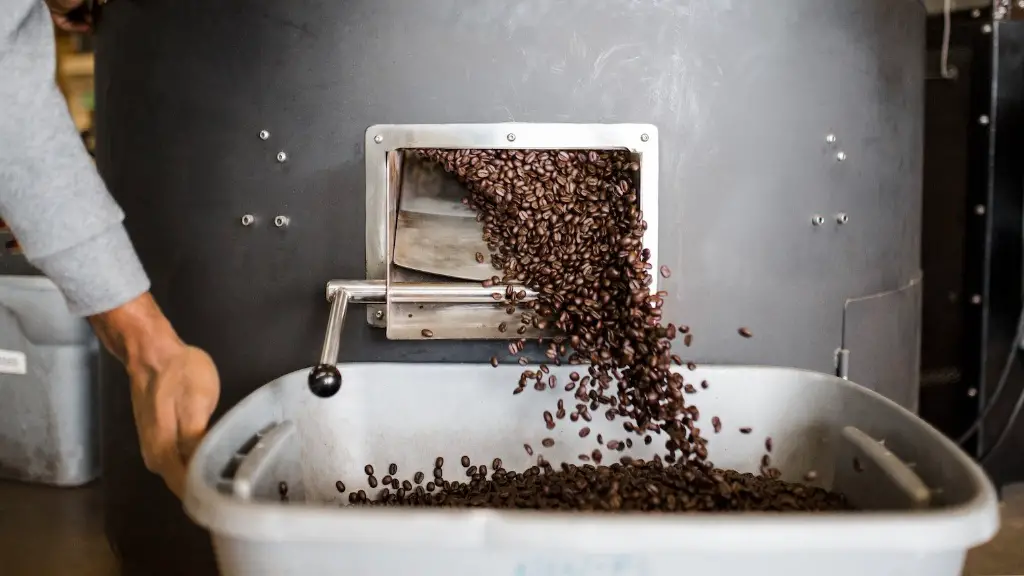Understanding Lupus
Lupus is an autoimmune disorder that affects multiple parts of the body and people of all races and ages. In lupus, the body’s own immune system mistakenly attacks healthy tissues causing inflammation, pain, and other bodily damage. Common signs and symptoms of lupus are fatigue, joint pain, fever, and a butterfly-shaped rash on the face. Symptoms may be mild or serious, and can often develop into more serious complications such as arthritis, kidney damage, heart problems, and neurological issues.
Treatment for lupus can include medications, counseling, physical therapy, and lifestyle changes. Diet is an important factor for people with lupus, as foods can have a major impact on their well-being. This is why it is important for people with lupus to understand the relative safety of drinking coffee, and other beverages with caffeine, when living with lupus.
Can You Drink Coffee with Lupus?
Coffee and other beverages with caffeine, such as energy drinks, tea and soda, are often used as a pick-me-up. Caffeine helps increase alertness, boost energy levels, and can offer a temporary mood boost. However, people with lupus must be careful when consuming beverages with caffeine as a research study suggests that caffeine may worsen the symptoms of lupus, depending on the individual’s level of sensitivity.
A research study conducted by the National Institutes of Health (NIH) looked at the connection between caffeine and lupus and found that increased caffeine intake can worsen lupus symptoms in certain individuals. The study found that lupus patients who consumed more than four cups of coffee a day had higher levels of inflammation, fatigue, and joint pain compared to those who did not. As a result, the NIH concluded that it is best for people with lupus to have moderate caffeine intake or avoid caffeine entirely if symptoms are severe.
In addition to the potential worsening of lupus symptoms, drinking coffee may interfere with certain lupus medications and disrupt the natural sleep cycle. Therefore, people with lupus should speak with their doctors to decide if they should avoid drinking coffee entirely, take breaks from drinking coffee, or limit the amount of caffeine they consume each day.
Managing Lupus through Diet
In addition to caffeine, the diet of people with lupus should be carefully monitored and managed. People with lupus should avoid processed foods and foods high in fat, sugar and sodium. Instead, the diet should be centered around fruits, vegetables and lean proteins. Furthermore, foods with properties that may reduce inflammation such as fruits with antioxidants, fatty acids, and Omega-3’s may be especially beneficial for lupus since inflammation is at the root of this condition.
Moreover, patients with lupus are at a higher risk of infection and should take extra care to maintain a healthy immune system. Therefore, a healthy diet and lifestyle should be implemented to reduce inflammation and build the immune system. In addition to improving diet, additional strategies to help reduce inflammation in patients with lupus can include stress reduction, exercise, adequate sleep, and supplementation with vitamins and supplements.
Managing Lupus Medication
For people with lupus, managing medications correctly is essential. Doctors may recommend medications such as non-steroidal anti-inflammatory drugs (NSAIDs), steroids, antimalarials and biologics to help reduce inflammation and manage lupus symptoms. Medications for lupus must be carefully monitored by a doctor, as they can have powerful effects on the body, both positive and negative.
If a person with lupus drinks coffee, it is important to note that it can interact with certain medications. Caffeine can make it harder for the body to absorb some medications, thus making them less effective. Therefore, it is important for people taking these medications to speak with their doctor before increasing their caffeine intake or consuming caffeine alongside their medication.
Lifestyle Changes and Support Groups
Living with lupus is not easy, but ways to cope and manage it better exist. It is helpful to join lupus support groups, which can offer emotional and practical support. Additionally, practice good self-care and learn to recognize signs of stress. These are important to help manage flares and reduce the risk of lupus complications. Exercise has also been found to be beneficial for people suffering from lupus, as it can reduce fatigue, improve gastrointestinal functioning, and more. People may also find it helpful to practice relaxation skills such as yoga and deep breathing to help reduce stress.
Alternative Drinks for People with Lupus
Individuals looking for an alternative to coffee with less caffeine should consider some of the low- or no-caffeine options available on the market. For instance, there are several brands of decaf coffee and tea that can be consumed without worrying about increased levels of inflammation or other lupus-related symptoms. In addition to decaf coffee and tea, other drinks with lower levels of caffeine include kombucha, hot cocoa, and chocolate milk.
Moreover, adding flavorings to drinks such as cinnamon, nutmeg, and honey can add additional nutrients and health benefits while also offering up unique flavors. Similarly, adding almond milk, coconut milk, or other non-dairy substitutes to coffee can add additional nutrients and reduce inflammation.
Natural Remedies and Supplements
People with lupus may want to look into taking natural remedies such as supplements, herbs, and vitamins to help manage their condition. However, herbal supplements and natural remedies cannot replace professional medical advice and should be discussed with their doctor before use. Research has found that supplements such as omega-3 fatty acids, vitamin D, turmeric, ashwagandha, and others can help reduce inflammation and have beneficial effects on lupus symptoms.
Acupuncture and Mind-Body Therapy
Acupuncture, massage, and mind-body therapies may also be beneficial for people with lupus. Acupuncture is an ancient form of Chinese medicine that uses thin needles to stimulate the body’s energy pathways. Studies suggest that acupuncture can be effective in reducing inflammation, reducing pain, and improving overall health. Mind-body therapies, such as yoga and meditation, may help reduce stress and improve the quality of life for people with lupus.
Conclusion
People with lupus should always consult their doctor before drinking coffee or other caffeinated beverages, as these beverages can worsen the symptoms of lupus. Furthermore, vitamin and herbal supplements, acupuncture and mind-body therapies may be beneficial for complimentary lupus treatment. Additionally, people with lupus should maintain a healthy diet and lifestyle, as these strategies can benefit their overall health and wellbeing.



